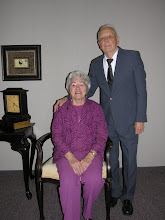To really know yourself, one must cross-examine yourself. Find your weaknesses and shortcomings, and try to correct them, and recognize the importance and potential power of self-control. One element of self-control is caution and caution is reserve in speaking. THINK! Deep thought is an excellent substitute for spontaneous reaction.
Most people have heard the ancient axiom voiced originally by Socrates which says; “Know Thyself.” But how many have examined the implications behind this significant bit of philosophy?
We readily accept such expressions as “the world is what you make it..” “we see what we wish to see,” “as a man thinks so is he,” “to thine own self be true.” But shouldn’t we search even deeper for the true significance of such sayings.
The Ancient Greeks told a story of a warrior named Achilles. His mother had been warned that he would die of a wound, so she dipped him as an infant in the river Styx. That was to make him invincible . But she held him by one heel which the protective waters didn’t cover. And it was through that heel that he received his final wound. What is our Achilles heel? A quick temper, a critical tongue, or chronic impatience . We need to know our weaknesses, and then rely on the Lord for His help.
I am so guilty of speaking before thinking- of speaking impulsively. I’m very opinionated and very verbal with my thoughts. Then there is the person that sits on the fence and has no thought about anything. I think the opinionated people are the leaders, but I’m sure having discretion in what is said is necessary. That is my biggest shortcoming. The tongue has great destructive power. We need to guard our speech, for what is spoken cannot be taken back.
Nobody is temptation-free. The Bible is not a written record of perfect people (except for Jesus). Adam and Eve failed to obey God‘s specific restrictions. Abram lied about his relationship to Sarai. Moses grew angry and struck the rock in disobedience to God. David committed adultery and murder. Solomon started out well, but turned from God for a time. Peter denied knowing Jesus. As we see the errors made by biblical characters, we can ask the Lord to protect us from making similar mistakes.
Even mature Christians have weaknesses in their spiritual armor that make them vulnerable to a wounding attack by the enemy of their souls. We can learn from the mistakes of others. We can’t possibly live long enough to make them all ourselves.
Wise is the person who knows what to say, but when not to say it. O Lord, help me to learn a lesson from the wise. Help me to hold my tongue and not let it slip.
“The boneless tongue, so small and weak,
Can crush and kill,” declared the Greek.
The Persian proverb wisely saith,
“A lengthy tongue, an early death.”
Sometimes it takes this form instead:
“Don’t let your tongue cut off your head.
While Arab sages this impart:
“The tongue’s great storehouse is the heart.”
From Hebrew wit, the maxim’s sprung:
“Though feet should slip, don’t let the tongue.”
A verse from Scripture crowns the whole:
“Who keeps the tongue doth keep his soul”
Author unknown


1 comment:
you said it well, i also have made plenty of gaffs
Post a Comment